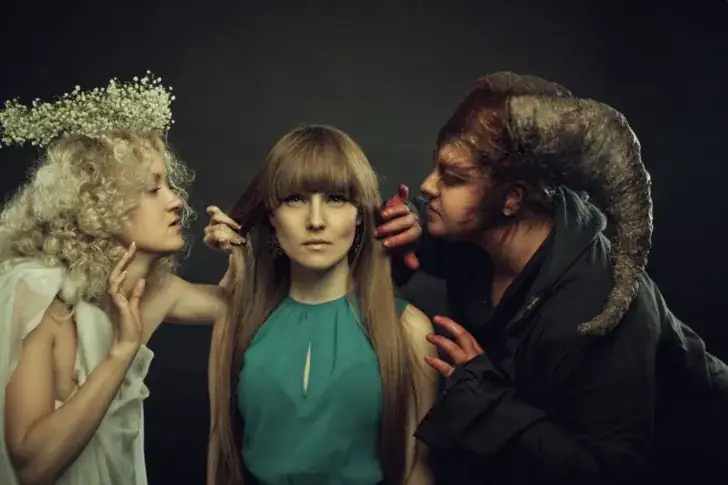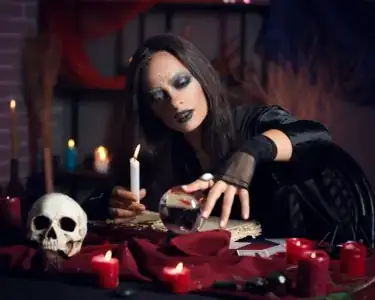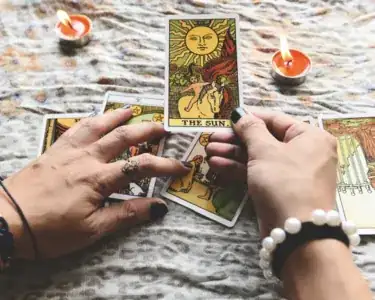Moral Alignment Test
Good versus evil, order versus chaos—decisions and values shape who we are, as well as our role in society. But have you ever stopped to consider where you might fall on the moral spectrum?
Popularized by Dungeons & Dragons, the alignment test offers insight into the deepest depths of your moral philosophy and personal psychology. Ready to discover your true nature? Click “Start Quiz” now.

Questions Overview
- Moral & generous.
- Stable & content.
- Strategic & powerful.
- Wild & unpredictable.
- I’d love to meet my soulmate and give them the world.
- It’d be nice to find someone dependable who I can count.
- I’d love a partner in crime—someone to rule the world with.
- Yuck—no thanks! Chain myself to one person for eternity? Sounds like torture.
- Spread love everywhere you go.
- Live and let live.
- The ends justify the means.
- If life were predictable, it’d cease to be life.
- At my old job, I wasn’t making the world a better place.
- My old job had bad benefits and a low salary—just wasn’t practical.
- I have more power in my new job, and that’s what I want most in life.
- My old role was b-o-r-i-n-g. I needed something more exciting.
- My favorite charity. Giving back is its own reward.
- I don’t! It’s going straight into my savings account, ASAP.
- Myself, duh! I’m buying myself a lavish treat.
- Something hilarious and random, like a clown costume or a pet rat.
- Do whatever’s necessary to return it.
- Return it, but leave a letter inside insisting the owner should be more responsible.
- Are you kidding? Finders keepers.
- I walk into a busy store and toss the money into the air, just for fun.
- Keep it close to the chest. After all, I’m a trustworthy person!
- To be honest, I might forget about it!
- Write it down and tuck it away. I can use it to my advantage later!
- Convince them to stop being such a snore. Act on it already!
- To give more than I take.
- White picket fence, 401k, the works.
- To take over the world (or at least the tri-state area).
- To live a fabulous, exciting life. I just want to shake things up.
- Immediately ‘fess up and apologize.
- Replace the machine but don’t discuss it further. The issue is resolved.
- Feed the rumor through gossip and lies.
- Leave a note on the break room door: I’m the coffee maker bandit! I struck once, and I’ll strike again.
- Plan a laidback trip your pal will love. They're happy, so you’re happy.
- Split the planning 50/50. That's the logical solution.
- Plan a busy, exciting trip. Your friend can always chill in the hotel room.
- Draw your vacation plans out of a hat. Why not let fate choose?
- Let them know that you’ll always be there if they need a friend. You just want what’s best for them.
- Exchange pleasantries and move on.
- Drop an item in their bag when they’re not looking. Enjoy mall jail, jerk.
- For fun, tell them you won the lottery and joined the circus since splitting.
- Take them in. They just found a warm, loving new home.
- Bring the dog to the shelter. They’re the professionals, after all.
- Shut the door. You don’t do charity cases.
- Adopt them…along with 10 other dogs. 11 dogs? That’s hilarious.
- They shouldn't have taken it. It's wrong.
- It's okay that they took it under these circumstances.
- If they follow the rules, they're more likely to get promoted, so they shouldn't take it.
- It's their life. I don't have an opinion.
- Robin Hood.
- Free Agent.
- Menace to society.
- I can't be defined.
- It's crucial to find powerful, like-minded allies and subjects for my team.
- To work solo. You can only really trust one person: yourself.
- To treat others how you want to be treated.
- Create chaos and seize power while everyone is occupied.
More Quizzes
Moral Alignment and D&D
D&D: Dungeons and Dragons is a popular medieval fantasy game created in 1974. Its process and setup are extremely unique; instead of following loosely defined events on a detailed game board, every “campaign” (game or storyline) is unique, concocted by the game’s “Dungeon Master” (creator or writer). The remainder of the gameplay is determined by choices made by individual characters. The game, though, is still dense and complicated. Campaigns are based on a complex world of characters and norms. To become an effective Dungeon Master, players will need to study the The Player’s Handbook and become an expert on the game’s materials.
Characters: The game is based around 11 main character classes. Characters can fall into any moral alignment, and they are: barbarian, bard, cleric, druid, fighter, monk, paladin, ranger, rogue, sorcerer, warlock, and wizard.
Alignments: Alignments help Dungeon Masters write a cohesive, logical campaign. By defining a character’s values and decision-making processes upfront, you can quickly determine how they might act in a unique situation during gameplay. This gives the writer a sort of character template to follow; when new, unforeseeable scenarios arise, it’ll feel less like writing, and more like reacting via a character.
Lawful Good, the “Crusader:” These people believe in justice, honor, and compassion. They trust their society and fight for good while doing exactly what their peers expect of them.
Lawful Neutral, the “Judge:” These people value tradition, order, and lawful behavior. They believe in lawful behavior, but don’t follow a specific moral code.
Lawful Evil, the “Dominator:” This type plays by the rules and manipulates the status quo in order to gain power and inflict harm.
Neutral Good, the “Benefactor:” This type has one goal: to improve others’ lives. They’re unbiased, willing to cooperate with or rebel against authority in the name of good.
True Neutral, the “Undecided:” Many true neutrals are committed to independence and impartiality. They believe that biases are harmful, instead, addressing each choice in a vacuum.
Neutral Evil, the “Malefactor:” These people are out to serve #1. No codes, values, or biases define them, just a desire for power and an unflinching cruelty.
Chaotic Good, the “Rebel:” This type is a wildcard with a kind heart. They believe in goodness, but not societal norms. Of all evil, they especially hate the limiting of personal freedom.
Chaotic Neutral, the “Free Spirit:” These are true independents. They refuse to be restricted or to act as others expect them too; they even refuse to serve a specific moral code.
Chaotic Evil, the “Destroyer:” Committed to anarchy and evil, these are unpredictable, vicious people. To some, they’re considered the most demonic on the chart.
In real life: Though moral alignments originated in D&D, they’re meaningful in real societies (and storytelling) as well. By investigating your personal values, you can better predict your behavior, identify your “role” in a society, and understand the people around you, too.
Want to learn more?
For more information about moral alignments, look through these cites below:















